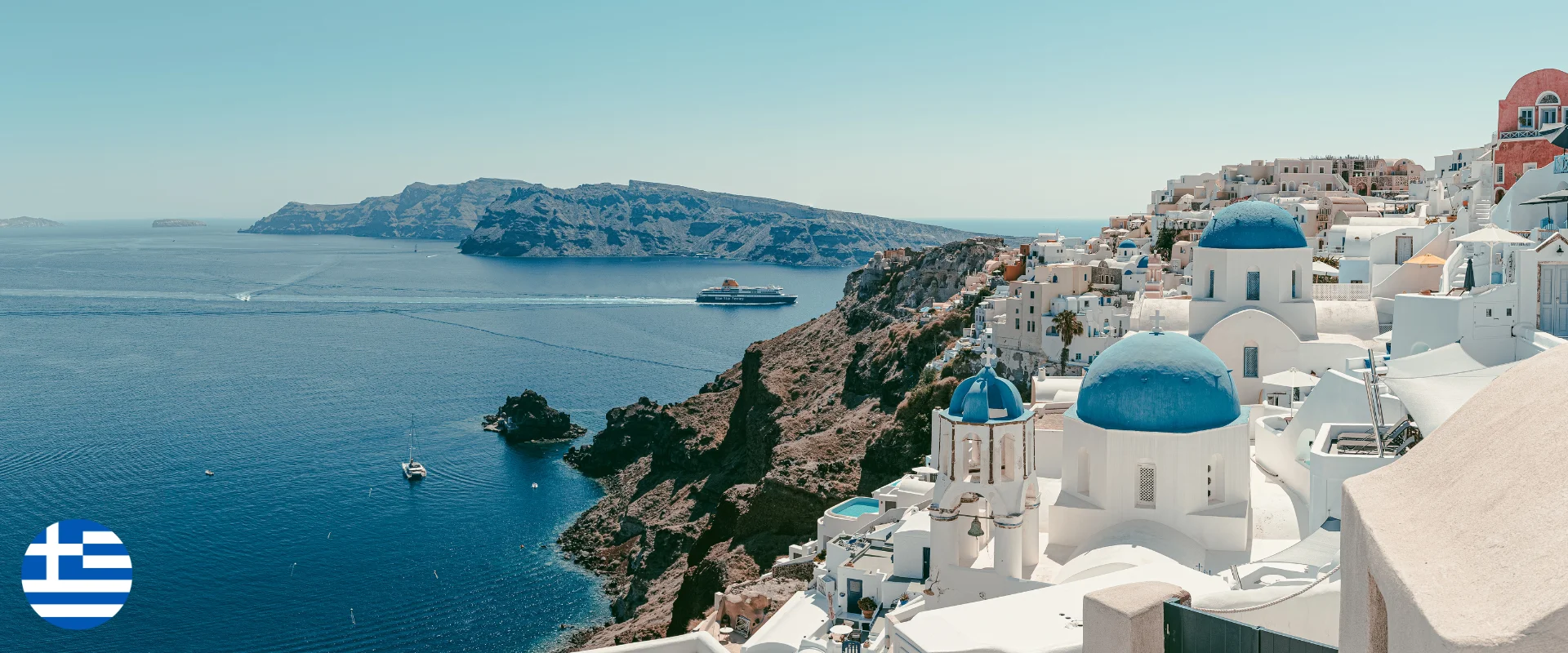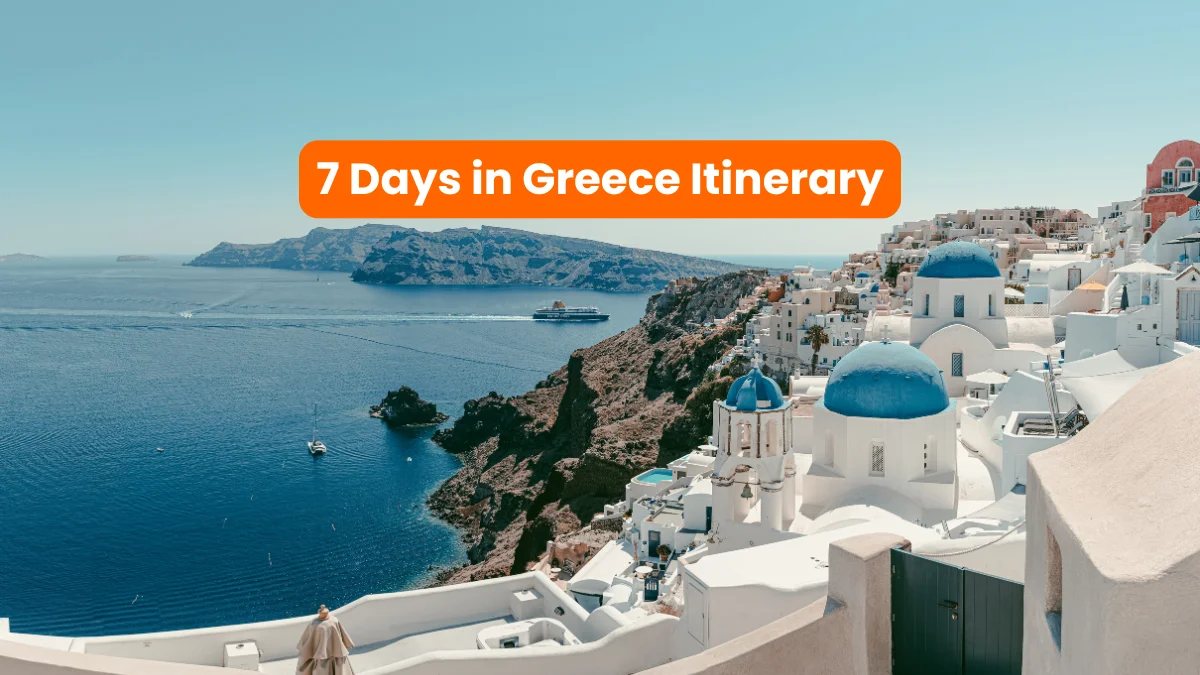Greek life is permeated by a deep sense of spirituality and respect for mythology. From Orthodox Christianity to tales of mythical creatures, these aspects contribute to the diversity of cultural experiences and shared beliefs found throughout Greece. As you explore these elements, you’ll find an intricate tapestry of practices and narratives enriching Greek identity.
Orthodox Christianity and Church Culture
Orthodox Christianity forms the spiritual backbone of Greek society, its influence extending far beyond the ornate church walls into daily life and cultural practices. Steeped in rituals and profound beliefs, Greek Orthodoxy offers travelers an intimate glimpse into the spiritual heart of Greece.
- The Divine Liturgy: At the core of Orthodox practice is the Divine Liturgy, a sacred rite conducted weekly, and even daily in monasteries. Attending a service provides a sensory experience; the scent of incense intermingling with the choir’s chants creates an atmosphere rich with reverence and tradition. Visitors are welcome to join, observing the interplay of faith and community firsthand.
- Feast Days and Church Traditions: The Orthodox calendar is punctuated by numerous feast days celebrating saints, each accompanied by church services and community celebrations. These include the Great Feast of Easter, a time of profound religious significance marked by solemn processions and, ultimately, a joyful resurrection celebration at midnight.
- Monastic Silence: Offering another layer of spiritual experience, Greece’s monasteries, such as those at Meteora, invite contemplation and peace. These havens of tranquility function both as religious retreats and cultural landmarks, where visitors, whether religious or not, can find solace and reflect on the deeper mysteries of existence.
- Icons and Symbolism: The veneration of icons is a distinct and visible aspect of Orthodox Christianity, richly symbolizing saints and holy events. Icons are not just art; they are considered windows into the divine, serving as focal points for prayer and devotion. Witnessing the care with which icons are attended reveals much about the Greek Orthodox dedication to tradition and faith.
Experiencing Greek Orthodoxy allows insight into how spiritual practices integrate seamlessly into Greek life, creating a foundation of beliefs that influence cultural behaviors and social interactions across the country.
Ancient Greek Gods and Modern Echoes of Mythology
Greek mythology remains one of the most fascinating aspects of the country’s culture, with stories of gods, heroes, and mythical creatures echoing through modern life, art, and cultural practices. The ancient myths form a narrative framework that continues to shape Greece’s cultural identity and tourism appeal.
- Mythological Landscapes: Many iconic Greek landscapes are steeped in mythology. Mount Olympus, often shrouded in mist, was considered the home of the gods. The Temple of Apollo at Delphi, once the site of the Oracle, connects visitors with the spiritual past of Greece, inviting contemplation of its historical and mythological significance.
- Symbolism and Cultural Practices: Mythology influences everything from art to literature and even contemporary customs. The stories convey moral lessons and ethical guidelines, blending seamlessly with the Greek ethos and often manifesting in festivals, theatrical performances, and even political discourse.
- Modern Artistic Expressions: Ancient myths are preserved and creatively reimagined in modern Greek arts. From literature capturing the epic tales of Homer to films that explore heroic adventures, storytelling in Greece continues to draw from its rich mythological past, proving these narratives’ continued relevance and allure.
- Myth and Tourism: Many of Greece’s monuments are not just tourist attractions, but gateways to the mythical world. Visiting places like the Parthenon or the Palace of Knossos offers a physical connection to stories that have been passed down through generations, making the myths themselves a key pillar of Greece’s tourism draw.
By delving into the mythological realm of Greece, travelers find more than stories; they encounter pillars of human thought and imagination resonant in today’s society, providing timeless insights into life, values, and the human spirit.
Superstitions, Evil Eye (Mati), and Ghost Stories
Delving into Greek superstitions and folklore reveals a rich tapestry of beliefs that intertwine the mystical with everyday life. These stories, both eerie and enlightening, provide a window into the spiritual and cultural dimensions of Greek society.
- The Evil Eye (Mati): Perhaps the most well-known Greek superstition is the mati. Believed to cause misfortune or illness through envious looks or excessive admiration, the evil eye is neutralized using various protective charms, like the ubiquitous blue eye amulet. Practices like the xematiasma, a ritual involving prayers to ward off the evil eye’s effects, illustrate the blend of modern belief and ancient practices.
- Rituals and Remedies: Various folk remedies and prayers are employed to counteract the evil eye, highlighting how these traditions remain embedded in everyday life. For example, if someone compliments a child, a parent may covertly make a spitting sound, a traditional precaution against the evil eye’s influence.
- Ghosts and Spirits: Stories of spirits often circulate within villages, especially older communities where oral traditions are strong. These tales, often cautionary, reflect the Greeks’ deep engagement with life’s mysteries and the boundaries between the living world and the afterlife.
- Regional Variations: Superstitions vary across Greece, with each region having its own interpretations and practices. On certain islands, particular plants are believed to ward off spirits, while in others, specific knocking patterns on doors are used to differentiate between welcome visitors and wandering ghosts. These customs enrich Greece’s folklore, providing each locality with a unique cultural identity.
Exploring Greek superstitions and ghost stories reveals the cultural depth and complexity of the country, demonstrating a wellspring of belief that continues to enrich Greek life and heritage.
Legends and Spirits from Greek Folklore
The spirit world, rich with legends and mystical creatures, occupies a significant portion of Greek folklore. Each tale weaves elements of history, magic, and moral lessons, offering insights into the cultural values and anxieties of the Greek people.
- Mythical Creatures: Ancient Greece popularized mythical beings like the Sirens and Nereids, enchanting sea nymphs said to lure sailors with their songs. Others, like the Hydra or the Cyclops, feature prominently in tales of heroism, illustrating the eternally captivating struggle between man and monster.
- Kallikantzaroi Creatures: These mischievous goblins, believed to cause trouble during the Twelve Days of Christmas, represent the more playful side of Greek folklore. The stories of their antics provide moral lessons, often used to encourage positive behaviors in children.
- Guardians and Protectors: Some legends reflect benevolent spirits protecting towns and individuals. Many communities believe in helpful phantoms or guardian trees, carrying a sense of comfort and tradition, fostering respect for nature and local heritage.
- Interpretations of the Supernatural: Ghostly tales and supernatural encounters are often interwoven into the social fabric, providing moral guidance and shaping community norms. These stories, shared by elders and preserved in local festivals, serve to pass wisdom across generations, maintaining cultural continuity.
Exploring these stories provides a deeper connection to Greece’s past, where myth and reality blur, encouraging visitors to appreciate the country’s rich cultural tapestry suffused with fantasy and tradition.



